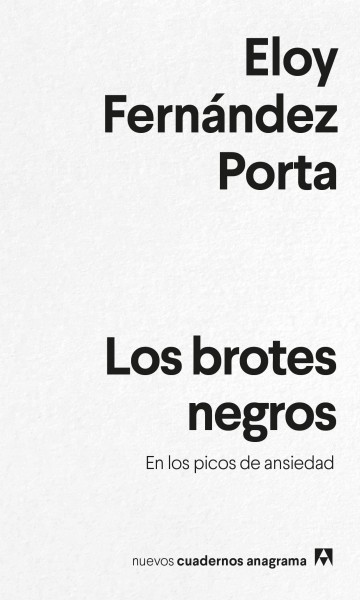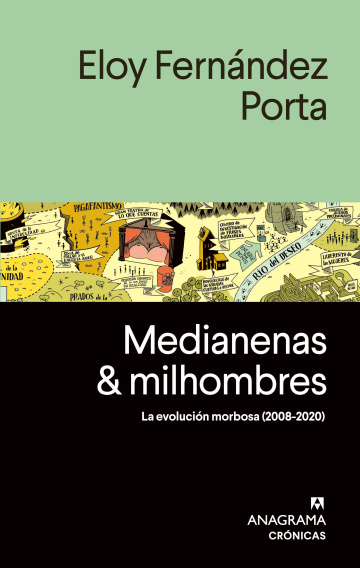| PAGES | 136 |
| SERIES | Nuevos cuadernos Anagrama |
| PUBLICATION | 02/03/2022 |

SERIES:Nuevos cuadernos Anagrama
A broken self-portrait, a notebook of psychic suffering that clearly describes the symptoms and intensity of a prolonged anxiety disorder and the dark way that it blooms.
What’s left of a person when they write,“my head is my enemy?”
A broken self-portrait, a notebook of psychic suffering, or the re-telling of the life of an ex: an ex-workaholic, ex-partner, and ex-member of the Mentally Sane Club. Los brotes negros—which could just as easily be titled The Good Tear Ducts, clearly describes the symptoms and intensity of a prolonged anxiety disorder, and the dark way that it blooms: the desperation phases, the rage episodes, the suicidal ideations.
Something more or something less than an individual, what is drawn here is an experimental subject—“let’s see if this other pill has an effect”— whose biorhythms, altered to the point of collapse, manifest through the exalted speed of production, profession, and capital.
| PAGES | 136 |
| SERIES | Nuevos cuadernos Anagrama |
| PUBLICATION | 02/03/2022 |


Eloy Fernández Porta (Barcelona, 1974) es doctor en Humanidades por la Universitat Pompeu Fabra, con Premio Extraordinario de Doctorado. Ha publicado once libros de «crítica mutante cuyas ideas se metamorfosean en estilo y forma narrativas» (Christine Henseler). En esta colección han aparecido Afterpop, Homo Sampler, €RO$ (Premio Anagrama de Ensayo), Emociónese así (Premi Ciutat de Barcelona), En la confidencia, Las aventuras de Genitalia y Normativa, Los brotes negros, Medianenas & Milhombres, y en catalán, L’art de fer-ne un gra massa. Pionero en las modalidades expandidas de la teoría, ha trasladado sus textos al spoken word en los grupos Afterpop Fernández & Fernández (con Agustín Fernández Mallo) y Mainstream (con Jose Roselló) y ha realizado el monólogo teatral Granito del Nuevo Mundo. Sus ensayos han sido adaptados al cómic (por Carlos Maiques y Marcos Prior) y a la videocreación (por Carles Congost y Natxo Medina). Ha sido traducido al inglés, francés y portugués.









